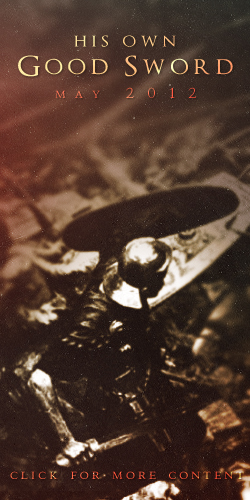Venture even a little way into the world of querying and you figure out the first five pages of your manuscript had better be in tip-top shape. I’ve seen several agents comment that even if they’re unimpressed with the query itself, they’ll still give the sample pages a chance-after all, when it comes down to it, it’s about the manuscript, not the query letter. So your first five had better be polished and perfect, not only well-written but attention-grabbing. Those first pages are the “hook” that will draw your readers in.
A lot of writers seem to interpret “hook” as an in medias res opening-a heart-pounding action sequence in the first few paragraphs, maybe, or a death or two, or a high-stakes conflict. Some sort of tension the reader will be so desperate to see resolved that they won’t want to put the book back on the bookstore shelf.
And it makes me wonder if that’s all an opening should be. Over and over again I’ve heard it stressed that “capturing” a reader’s attention in the first five pages is vitally important. But that really has kind of a negative connotation when you think about it. All of those sorts of phrases, in fact, have kind of an unpleasant sound- “capture,” “hook”; something that “forces” a reader to keep reading. It all sounds cold and calculated and unpleasant, like it’s some scientific formula authors can plug in to ensure readers will keep turning pages.
It’s an indicator of our generally fast-paced, impatient, distracted culture, maybe-of our laziness, to be blunt. We want our entertainment delivered instantaneously, in palatable little bites we can consume without giving pause-and as long as authors give us that, we’re guaranteed to keep consuming.
I like a fast-paced thriller with an explosive opening as much as anybody. They’re marketable, that’s for sure. But what about slower openings-prose that makes you feel and think, rather than just giving you a rush? I’m afraid openings that rely on gimmicks to draw readers in are ultimately hampering their own impact. The gimmick is useless after the first read, and if there’s no real substance beneath it, there’s no reason for a reader ever to return to those pages.
There’s certainly a distinction to be made between a gimmicky opening and an opening that’s gripping and fast-paced yet well-crafted-I don’t mean to imply I think all fast-paced openings are cheap or disposable. After all, The Maltese Falcon starts pretty much with a bang, and it made the list of the 100 Greatest American Novels, 1891-1991. But I wonder sometimes what would happen if, say, Hemingway had shopped around the first five pages of A Farewell to Arms in the world of modern publishing. Because nothing much happens in the first five pages of A Farewell to Arms. In fact, nothing much happens in the first five chapters of A Farewell to Arms. Some description of the Italian countryside, the traffic on the dusty road. The main character goes with a friend to meet some English nurses. He drinks. He smokes. He reflects. He sits with his friends in the bar night after night and has conversations that do nothing to “advance the plot.” There’s no hook, no twist, no edge-of-your-seat nail-biting incitement to keep you turning the pages.
Your involvement with the story comes only gradually and with perseverance on your part. There’s not a single snappy action scene through the entirety of the book. But by the end you feel a deep connection with that Italian countryside, with the rain in Milan and the snow in Montreux, with the fatally flawed characters, with the utter bleakness of the war. You get the feeling there are layers and layers to be unpeeled-that you could read the book again and again and each time discover a whole new layer you didn’t even know existed the first time around.
We don’t like to think reading should take effort. Reading is entertainment, right? Entertainment shouldn’t require effort! But for something to have truly lasting impact on us-our reading material the same as anything else-it takes effort and involvement and patience. And sometimes it takes more than five pages.

 Amanda McCrina is an author, artist, student, history buff, coffee connoisseur, cinephile, hockey fan, cat lady, and all-around nerd. She writes historical fiction and fantasy. She also writes about herself in third person. Her debut historical fantasy novel
Amanda McCrina is an author, artist, student, history buff, coffee connoisseur, cinephile, hockey fan, cat lady, and all-around nerd. She writes historical fiction and fantasy. She also writes about herself in third person. Her debut historical fantasy novel 
Dang, you are spot-on with this!!! Interestingly enough, I saw a couple tweets from agents this past week that were begging potential writers to NOT just plunge into the first page mid-action, to PLEASE take the time to give context, build the world/scene/character a little first. “I need context!” cried one. It was very encouraging, because I want that kind of context too. The ones that grab and pull me in are not the ones that start mid-action - those only make me feel jerked around. But if the author can communicate motion, urgency, intensity from the beginning but WITHOUT making me feel like I’ve been put through a brick wall in the first sentence…..now THAT is a gift.
Ergh, and please excuse all the caps used in this response. Hit a soft spot, have we? Yes. I’m afraid so….
Thank you so much for the kind words! I was kind of afraid this post would come out as a bitter venting of my own frustrations-good to know others feel the same!
And yes, I have so much respect for writers who can find the happy medium and put both exciting plot and beautiful prose to use in their openings.
Amanda,
I’m 100% in agreement with this. I’ve read many great novels that didn’t have someone hanging from a cliff within the first five pages. I think it’s even crazier when people expect this kind of heart pounding action in the first page of the novel. How can we care about any character in trouble on page 2 if we haven’t had a chance to get to know that character? Thanks for the great post.
Not much happens in the beginning of any Steinbeck novel either, but he’s still my favorite.
Oh, I hear you. I definitely think my first five pages held me back for a long time. Recently I had a professional editor look over it and she took them apart. Took. them. Apart. It was fantastic )
)
With her comments I completely rewrote them, and when an agent asked to see it out of the blue from a query I’d sent two months ago, I sent her the new version. What happened? She asked to read the full ms three days later. Wowza. How chuffed was I?
She’s had it just over two weeks now, and regardless of whether she offers to represent me or not, I know that my first five pages are finally where it needs to be.
Great post.
Interesting thoughts! I haven’t consciously considered this. I typically just sit down and write without thinking about the pacing or hook too much. So this was good for me to read. My own novels tend to have a hook at the end of the first chapter. To me, context really is everything, and I find it hard writing a book that starts mid-action without any explanation of who, what, and where (I like the why being revealed much later so I can try to figure it out).
Different genres lend themselves more to slower, more deliberate and textured openings setting the stage for the story to come. High fiction tends to do this more than pulp or common market. I do enjoy both and probably prefer a happy medium of the two. Most book I start to read, unless I know it’s a slow-starting author, I give them three chapters to get me attached to the story. But it’s usually the characters or the writing itself, not a plot device that keeps me reading a story.
Thanks for the comments, all you guys! Abigail, I agree genre plays a big part in it-though I kind of regret there has to be such a divide between “high fiction” and “marketable fiction.” And I totally agree with you, Joseph-you need some established context before you can truly root for a character.
And I totally agree with you, Joseph-you need some established context before you can truly root for a character.
@D U Okonkwo, congratulations on that full request! Here’s hoping it turns into an offer of representation.